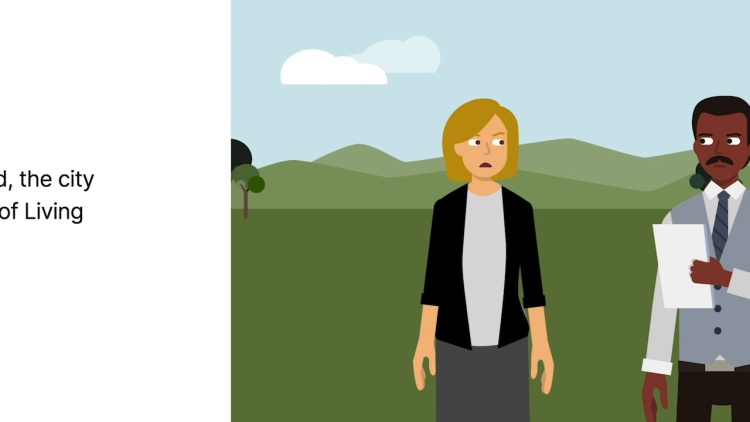City of Palm Springs v. Living Desert Reserve
California Court of Appeal, Fourth District, Division 2
82 Cal. Rptr. 2d 859 (1999)
- Written by Patrick Busch, JD
Facts
In 1986, a will was executed conveying 30 acres of land to the City of Palm Springs (plaintiff) on the express condition that it be forever used as “a public park for the exposition of desert fauna and flora.” The deed provided that if this condition were breached, the land would pass to the Living Desert Reserve (defendant) and the City would forfeit all rights to it. In 1989, the City determined it would rather use the land for a golf course, and attempted to purchase Living Desert’s reversionary interest. These negotiations failed. In March 1993 the City filed a complaint in eminent domain to gain possession of the land, and applied for immediate possession of the reversionary interest. The trial court granted immediate possession. In October 1993, Living Desert cross-complained against the City, alleging that the condition had been breached and the City’s interest in the land had reverted to Living Desert. The trial court held that Living Desert’s reversionary interest was not compensable. Living Desert appealed, and the state Attorney General joined as amicus curiae. Living Desert argued that the normal rules governing compensation of reversionary interests do not apply when a condemnor uses eminent domain to avoid complying with conditions attached to a gift of property. The Attorney General argued that the land was given to the city in trust, not in fee simple subject to a condition subsequent.
Rule of Law
Issue
Holding and Reasoning (McKinster, J.)
What to do next…
Here's why 907,000 law students have relied on our case briefs:
- Written by law professors and practitioners, not other law students. 47,100 briefs, keyed to 996 casebooks. Top-notch customer support.
- The right amount of information, includes the facts, issues, rule of law, holding and reasoning, and any concurrences and dissents.
- Access in your classes, works on your mobile and tablet. Massive library of related video lessons and high quality multiple-choice questions.
- Easy to use, uniform format for every case brief. Written in plain English, not in legalese. Our briefs summarize and simplify; they don’t just repeat the court’s language.





